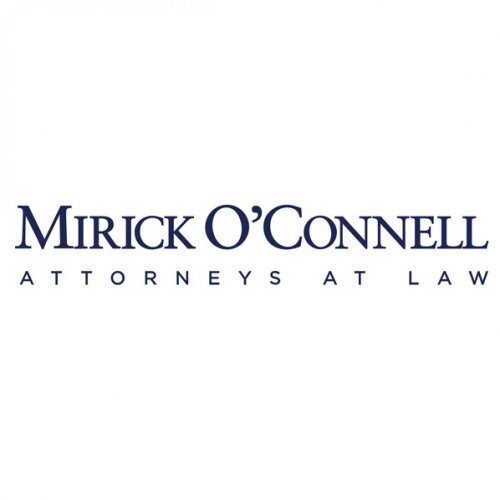Best Corporate & Commercial Lawyers in Massachusetts
Share your needs with us, get contacted by law firms.
Free. Takes 2 min.
Or refine your search by selecting a city:
List of the best lawyers in Massachusetts, United States
United States Corporate & Commercial Legal Articles
Browse our 1 legal article about Corporate & Commercial in United States written by expert lawyers.
- United States NY LLC Transparency Act 2026 Compliance Guide
- The federal Corporate Transparency Act (CTA) and New York's LLC Transparency Act are separate regimes: reporting to FinCEN does not satisfy New York's 2026 state filing requirement. Most small corporations and LLCs in the United States must file Beneficial Ownership Information (BOI) with FinCEN starting 2024, unless a specific federal... Read more →
About Corporate & Commercial Law in Massachusetts, United States
Corporate and commercial law in Massachusetts covers the legal principles that govern business formation, operation, transactions, and compliance in the state. It includes a wide array of matters such as choosing the right business entity, drafting and interpreting contracts, mergers and acquisitions, employment relationships, intellectual property concerns, and addressing disputes between businesses or between owners. Massachusetts businesses are governed by both state-specific statutes and federal regulations, making it essential to understand the local legal landscape whether you are starting, growing, or exiting a business.
Why You May Need a Lawyer
There are several common situations where individuals or business owners in Massachusetts may need legal advice in corporate and commercial law:
- Choosing the best business structure, such as an LLC, corporation, or partnership
- Drafting and reviewing contracts or service agreements
- Handling employment law matters and protecting intellectual property
- Facilitating mergers, acquisitions, or dissolutions
- Resolving disputes between business partners, shareholders, or third parties
- Complying with state and federal business regulations
- Navigating tax implications and corporate governance requirements
- Selling, purchasing, or leasing commercial property
- Responding to lawsuits or government investigations
- Protecting business interests in an ever-changing legal environment
Having a lawyer ensures your business decisions are legally sound and helps mitigate risks, safeguard assets, and avoid costly legal mistakes.
Local Laws Overview
Massachusetts has its own set of laws and regulations that apply to corporations and commercial activities. Some key aspects include:
- Business Formation Laws: Businesses can be organized as LLCs, corporations, partnerships, or sole proprietorships. Chapter 156D of the Massachusetts General Laws governs business corporations, while Chapter 156C covers LLCs.
- Filing Requirements: Most entities must register with the Secretary of the Commonwealth and comply with annual reporting requirements.
- Employment Laws: Massachusetts has strict rules related to employee rights, including minimum wage, paid family and medical leave, and anti-discrimination regulations. Businesses must be aware of both Massachusetts and federal employment laws.
- Contracts: Contracts must meet specific criteria to be enforceable. Massachusetts also has unique requirements for certain types of contracts, such as those involving real estate or business sales.
- Consumer Protection: The Massachusetts Consumer Protection Act (Chapter 93A) protects consumers and businesses from unfair and deceptive practices.
- Securities Regulation: The Massachusetts Securities Division regulates the offering and sale of securities within the state to safeguard investors.
- Taxation: Massachusetts imposes state-level corporate excise taxes, and businesses may also be subject to a variety of local and federal taxes.
Understanding these legal requirements is crucial for successful business operations in Massachusetts.
Frequently Asked Questions
What types of business entities can I form in Massachusetts?
You can form corporations, limited liability companies (LLCs), partnerships (general or limited), and sole proprietorships. Each entity has different legal, tax, and liability implications.
How do I register my business in Massachusetts?
Most businesses need to register with the Secretary of the Commonwealth. The process varies according to entity type but generally involves filing formation documents and paying a registration fee.
Are there annual reporting requirements for businesses?
Yes, corporations, LLCs, and other entities must file annual reports with the state, update information as needed, and pay applicable fees.
What is the Massachusetts Consumer Protection Act?
This statute, also known as Chapter 93A, prohibits unfair or deceptive business practices, protecting both consumers and businesses in commercial transactions.
Do I need an operating agreement for my LLC?
While not legally required, having a written operating agreement is strongly recommended to clarify the rights and duties of LLC members and managers.
How are business disputes resolved in Massachusetts?
Business disputes are often resolved through negotiation, mediation, arbitration, or litigation in Massachusetts courts. The appropriate method depends on the type of dispute and contract terms.
What employment laws must Massachusetts businesses follow?
Employers must comply with both state and federal laws regarding minimum wage, overtime, anti-discrimination, paid leave, and workplace safety, among others.
How do I protect my business’s intellectual property?
You may need to register trademarks, copyrights, or patents and use contracts to protect trade secrets. Massachusetts law provides remedies for misappropriation of intellectual property.
Are non-compete agreements enforceable in Massachusetts?
Massachusetts law imposes specific requirements for non-compete agreements, such as limits on duration and geographic scope, consideration, and written notice to employees.
Where can I get assistance if I receive a legal complaint against my business?
It is vital to contact a qualified business attorney immediately to evaluate your situation and develop a response strategy. Early legal intervention can help protect your interests.
Additional Resources
If you need more information or help navigating corporate and commercial law in Massachusetts, consider the following resources:
- Secretary of the Commonwealth - Corporations Division: Handles business registration and filings
- Massachusetts Office of the Attorney General: Oversees consumer protection and fair business practices
- Massachusetts Bar Association: Provides lawyer referrals and educational material
- Massachusetts Small Business Development Center Network: Offers business advice and support services
- U.S. Small Business Administration - Massachusetts District: Assists with federal programs and resources
Next Steps
If you need legal assistance regarding a corporate or commercial matter in Massachusetts, consider the following steps:
- Identify and organize relevant documents and background information related to your issue
- Outline your goals or concerns to help focus your legal consultation
- Contact a business attorney licensed in Massachusetts who has experience with corporate and commercial issues
- Schedule an initial consultation to discuss your situation and explore options
- Stay informed of deadlines or reporting requirements to ensure ongoing compliance
Timely legal advice is the key to making informed decisions and protecting your business interests in Massachusetts’s dynamic commercial landscape.
Lawzana helps you find the best lawyers and law firms in Massachusetts through a curated and pre-screened list of qualified legal professionals. Our platform offers rankings and detailed profiles of attorneys and law firms, allowing you to compare based on practice areas, including Corporate & Commercial, experience, and client feedback.
Each profile includes a description of the firm's areas of practice, client reviews, team members and partners, year of establishment, spoken languages, office locations, contact information, social media presence, and any published articles or resources. Most firms on our platform speak English and are experienced in both local and international legal matters.
Get a quote from top-rated law firms in Massachusetts, United States — quickly, securely, and without unnecessary hassle.
Disclaimer:
The information provided on this page is for general informational purposes only and does not constitute legal advice. While we strive to ensure the accuracy and relevance of the content, legal information may change over time, and interpretations of the law can vary. You should always consult with a qualified legal professional for advice specific to your situation.
We disclaim all liability for actions taken or not taken based on the content of this page. If you believe any information is incorrect or outdated, please contact us, and we will review and update it where appropriate.
Browse corporate & commercial law firms by service in Massachusetts, United States
Massachusetts, United States Attorneys in related practice areas.
Browse corporate & commercial law firms by city in Massachusetts
Refine your search by selecting a city.
















